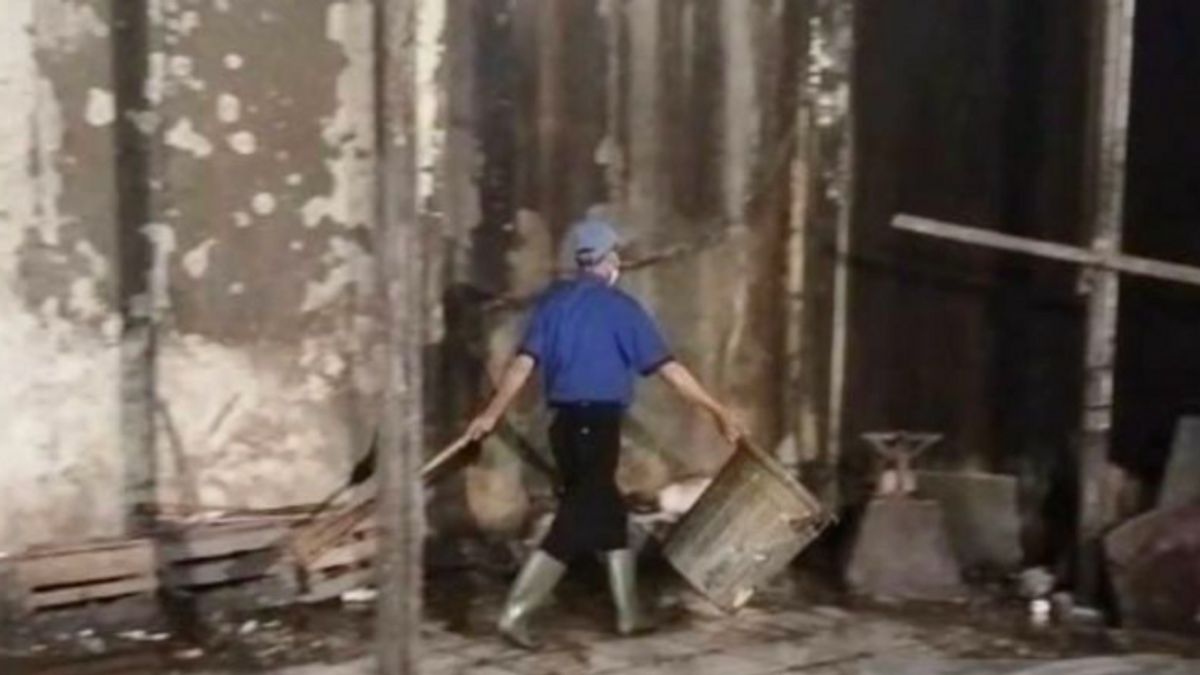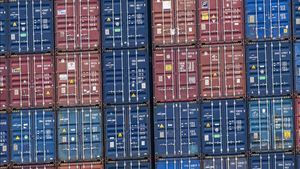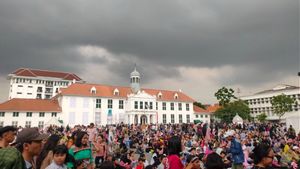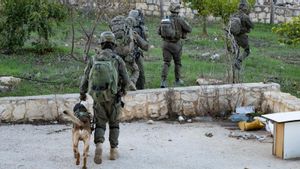JAKARTA - The volume of waste in the rest area of KM 57 of the Jakarta-Cikampek Toll Road increases significantly every long holiday momentum such as the 2024 Christmas and 2025 New Year holidays.
"If during the long holiday season such as the Christmas and New Year holidays, the volume of waste in the rest area of KM 57 will certainly increase compared to normal days," said Teguh Winarko, an officer managing the rest area of KM 57 of the Jakarta-Cikampek Toll Road, in Karawang Regency, West Java, as quoted by ANTARA.
He said that in normal days, the volume of waste in the rest area of KM 57 only reaches 4-5 cubic per day. Meanwhile, during the long holiday momentum such as the Christmas and New Year holidays, the volume of waste can reach 9-10 cubic per day.
"So yes, because visitors to the rest area increase during the long holiday season, the volume of waste has increased," he said.
It was stated that the waste produced in the rest area was then taken to the Jalungang final disposal site (TPA) located in Wancimekar Village, Kotabaru District, Karawang.
According to him, the waste produced in the KM 57 rest area has actually been sorted. However, at temporary disposal sites (TPS) around the rest area, no barriers have been carried out.
Head of the Karawang Environment Agency, Iwan Ridwan, said that the waste produced in the rest area of KM 57 was transported to the Jalupang TPA using a third party transportation service. Therefore, he did not know for sure the amount of waste transported from the rest area of KM 57 to the Jalupang TPA.
"Yes, every day the waste from the KM 57 rest area is transported to the Jalupang TPA. There are about three trucks carrying garbage from the KM 57 rest area to the Jalupang TPA every day," he said.
Meanwhile, Minister of Environment Hanif Faisol Nurofiq during a visit to the rest area of KM 57, Wednesday (25/12) night encouraged to encourage toll road rest area managers to build a culture of sorting waste, so as not to contribute to the TPA's burden.
BACA JUGA:
During his visit, he emphasized the importance of implementing a waste sort culture by both managers and visitors.
"We ask that all tenants and visitors in the rest area must choose garbage. Garbage should not be mixed because this will be a problem when processing at the final stage," he said.
He said that every tenant must collect their waste regularly to a predetermined location. Garbage that has value, such as organic waste for feed with a magazine or compost, must be managed separately.
"TPA is the final processing place, not the final disposal site. Only residues that cannot be processed in this area are allowed to enter the TPA," he said.
He also asked the rest area manager to submit a written appeal to visitors regarding waste management. He even suggested that the provision of trash cans be reduced to encourage people to take home and manage their own waste.
Hanif also reminded that regional managers have a legal obligation to regulate waste in accordance with the law. Violations in waste management, such as practical dumping, will be subject to strict sanctions, including giving suspect status to negligent parties.
To increase awareness, he proposed that rest area managers recruit the community as environmental and hygiene ambassadors. They are tasked with educating visitors to maintain environmental cleanliness.
"If anyone violates the rules related to waste, regional managers can impose sanctions or fines according to regional regulations. This is important to build the character of the nation that cares about the environment," said Hanif.
He is optimistic that with good collaboration between managers, visitors, and the public, rest areas will remain clean and comfortable, reflecting a sustainable waste management culture.
The English, Chinese, Japanese, Arabic, and French versions are automatically generated by the AI. So there may still be inaccuracies in translating, please always see Indonesian as our main language. (system supported by DigitalSiber.id)















